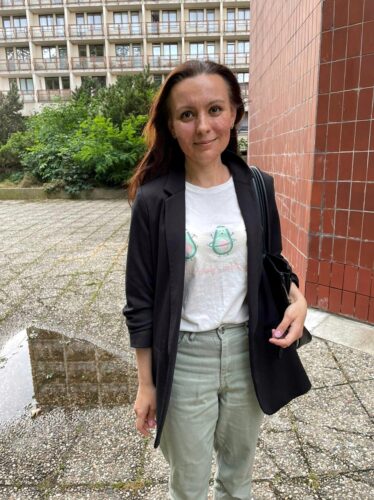Let`s suppose you would like to participate in an international long-term mobility program or even find a job abroad. In that case, it is worth considering several other points besides the language barrier. Below you can find some useful tips:
- Maintaining a profile in professional social networks. It is worth spending time and attention on your professional profile to give the employer an opportunity to get to know you better. The most popular network for the European region is Linkedin. The Xing network is popular in German-speaking countries. However, that doesn’t mean your official FB profile can be all about cats and football. What to fill them with? You can make posts about those of your activities that directly demonstrate a professional focus: participation in seminars, your thoughts on professional publications or news, and achievements. It is not about bragging – it is a modern requirement and an opportunity Familiarize yourself with the international standards of business documentation, in particular for CV. Suppose you are applying for a job in your field. In that case, it is better to learn how to properly prepare the primary documents and offer them to the employer using internationally recognized templates (EUROPASS in the EU). It helps to standardize and structure information for facilitating the work of HR specialists when evaluating candidates.
- to make a first impression.
- Monitoring of professional sites with vacancies, internships, and other opportunities. If you do not have work experience or have not yet finished your studies, the search for internships abroad will be the most relevant for you. Government programs, large companies (Coca-Cola, for example), and their representative offices, international organizations, and educational institutions in various countries often offer them. Such programmes may or may not be paid, but in any case, it is a real chance to get the first work experience record for your CV. In general, participation in mobility programs and active expression of interest in the profession are signals to the employer that speak in your favor. Let`s suppose you already have work experience. Then you can use for search vacancies following professional websites: Indeed, Glassdoor, Reed, efinancialcareers, WorkinStartups, BerlinStartupJobs, heet.io. Additionally, some large companies have their own sites with vacancies, which are also worth monitoring.
- Try to develop and demonstrate “soft skills”. The European labor market is highly competitive. Even if you have good professional knowledge, it is not enough. During the interview, it is also necessary to demonstrate readiness for cooperation, work in a team, resolve conflict situations, and, in general, communicate effectively at all levels.
- Prepare yourself to perceive a culture shock. This concept is one of the key ones in the intercultural communication theory. Faced with differences in cultural traditions and habits abroad, we subconsciously begin to compare. Something causes us approval, especially if it is similar to the native culture, and something – on the contrary, the stronger the differences, the sharper their perception. For example, the rules of politeness in different countries can differ significantly. In Ukraine, it is enough to say hello, and the polite form of making a request may not contain the direct word “please.” For comparison, in the Czech Republic, in any communication (in a store, transport, public institution, etc.), you must use the local analog to this word (Prosim). And when entering the elevator, even with strangers, you should say hello and goodbye. Otherwise, you will be considered a rude and uneducated person. Our attitude towards another culture in its development goes through several phases: from admiration to complete denial, and finally – adaptation and assimilation. Understanding this process will help you get through the adjustment period and not succumb to pessimism.
- Identify the main differences in organizational behavior. Each country has peculiarities in the organization of the work process. This problem has been widely studied by many scientists (R. Lewis, R. Gesteland, F. Trompenaars, G. Hofstede, etc.). Familiarizing local “rules of play” in the chosen countries will allow you to prepare for possible misunderstandings and correct your behavior to communicate with future management and colleagues efficiently.
